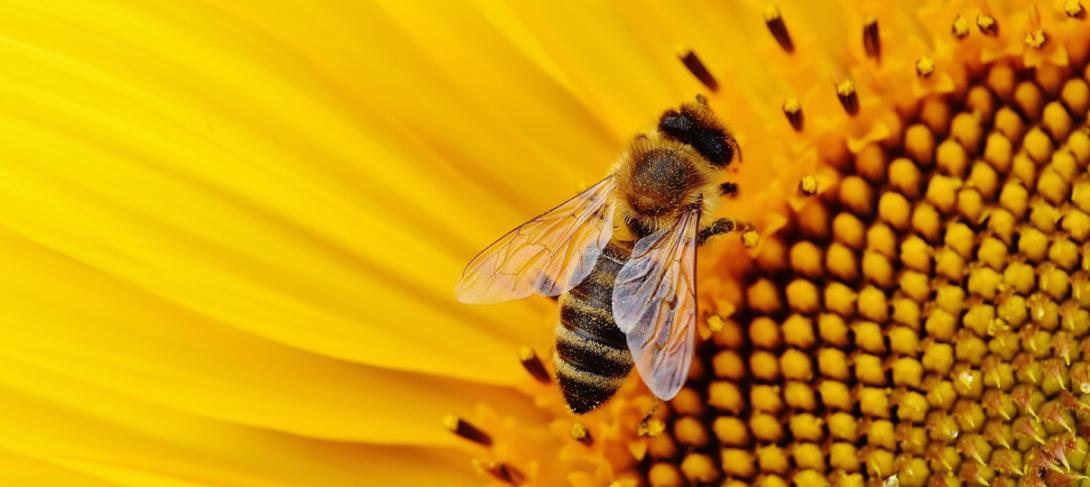A Honeyed Shot in the Arm for Aatmanirbhar Bharat
With technology intervention, Sweet Revolution can achieve self-sufficiency and make significant gains in the international market to help double farmers’ income.
What is Sweet Revolution?
Sweet revolution is an ambitious initiative of the Government of India, which is aimed at promoting apiculture, popularly known as ‘beekeeping’, for accelerating the production of quality honey and other related products.
Beekeeping is a low investment and highly skilled enterprise model, in which technology application has emerged as a great enabler for socio-economic growth.
The demand for good quality honey has grown over the years as it is considered a naturally nutritious product. Other apiculture products such as royal jelly, beeswax, pollens, etc., are also used extensively in different sectors like pharmaceuticals, food, beverage, beauty, and others.
Scaling up beekeeping will double farmers’ income, generate employment, ensure food security and bee conservation, and increase crop productivity and pollination. To provide a booster shot to Sweet Revolution, the government launched the National Beekeeping and Honey Mission, for the overall promotion and development of scientific beekeeping in mission mode.
How Does Technology Help?
The intervention of technology in bee-farming will help scale up the sector and promote entrepreneurship. The development of an organised bee-farming sector from local to high-tech apiaries can a play significant role in this regard. IoT, AI, mobile sensors and smartphone apps can help beekeepers in raising healthy bee colonies and timely extraction of quality honey and other products. Algorithm-based predictive models could be designed for commercial bee-keepers for providing operational support to large-scale apicultural practices. The development of cost-effective indigenous technology that enables farmers to raise healthy bees on farms and assess their hive fitness through sensors or cloud information can also be introduced to this sector.
Technology will preserve and support bee conservation, prevent diseases or the loss of bee colonies and provide bumper quality and quantity of apiculture products. Hi-tech apiaries for commercial bee-farming will lead to the manufacture of high-volume marketable products. Good farming practices will yield superior-quality honey and other products for the domestic as well as international market. Research in the fields of beekeeping, bee-behaviour, etc., will increase the scope for commercial rearing of healthy bee colonies and apiculture products.
Scope for Growth
The apiculture market is estimated to register a CAGR of 4.3% during the period 2020–25, with Asia–Pacific as the dominant producer. As per a report by IMARC, the Indian apiculture market size is expected to reach a value of Rs 33,128 million by 2024, expanding at a CAGR of nearly 12% by 2024. India is the sixth major natural honey exporting country. During 2019–20, the recorded export of natural honey was 59,536.75 MT for Rs 633.82 crore. The major export destinations were USA, Saudi Arab, Canada, and Qatar. The demand for organic honey in the international market could be leveraged for promoting organic beekeeping guidelines.
For propagating the sector, the landscape for beekeeping and the species could be expanded on a commercial scale.
India is home to four of the seven known bee species. Two of these are domesticated, Apis cerana (oriental honey bee) and Apis mellifera (European honey bee), and the other two are wild, Apis dorsata (giant/rock honey bee) and Apis florea (dwarf honey bee). Bees play a crucial role in pollination. Oilseeds, orchard crops, legumes, vegetables, timber trees and ornamental flowers are some of the major crops that benefit from bee pollination.
The conservation and multiplication of bees depend on the density and composition of local flora, which acts as the food base for these pollinators.
Around 500 flowering plant species are major or minor sources for foraging, which provides varieties of natural honey flavours: rapeseed/mustard honey, eucalyptus honey, lychee honey, sunflower honey, karanj/pongamea honey, multi-flora Himalayan honey, acacia honey and wild flora honey. This provides lucrative opportunities for beekeeping industries.
An organised and tech-driven bee-farming sector is an excellent initiative for generating employment opportunities, with skill-building projects. It will also help attain Sustainable Development Goals 1 (No Poverty), 2 (Zero Hunger), 3 (Good Health and Well-Being), and 15 (Biodiversity and Vibrant Ecosystem).
Dr Tanu Sethi is Senior Associate, NITI Aayog. Views expressed are personal.
- Mordon Intelligence report
